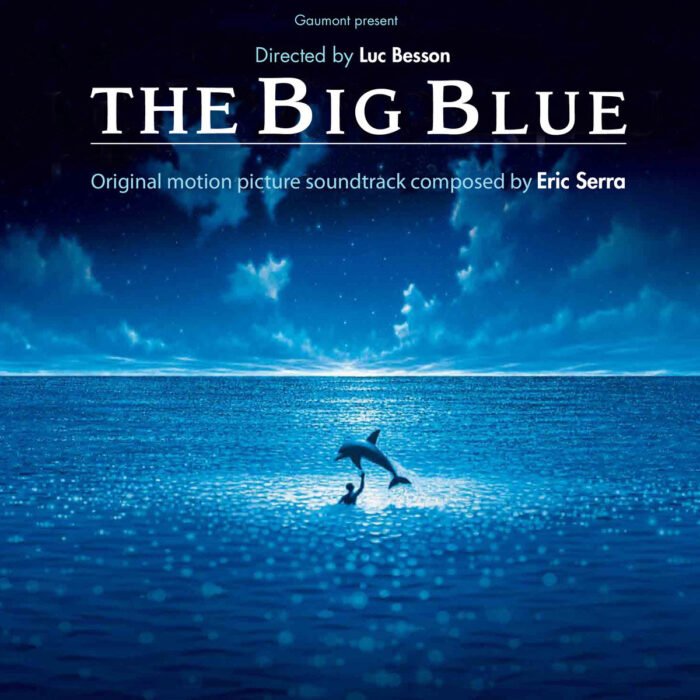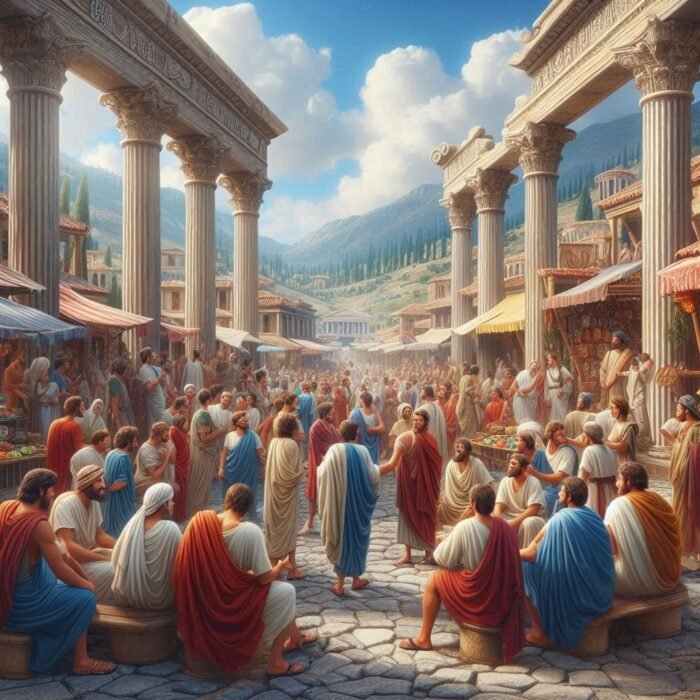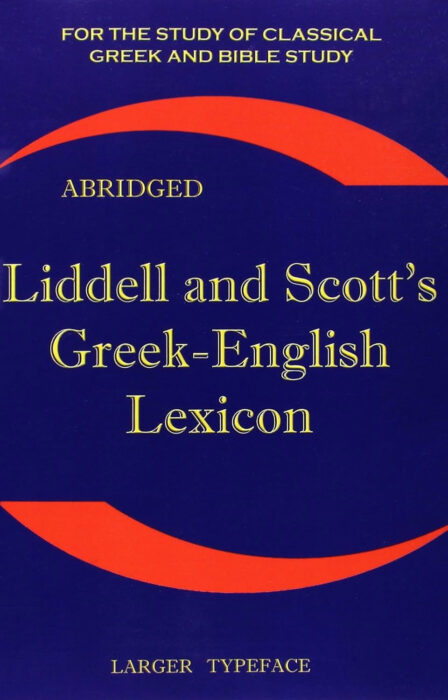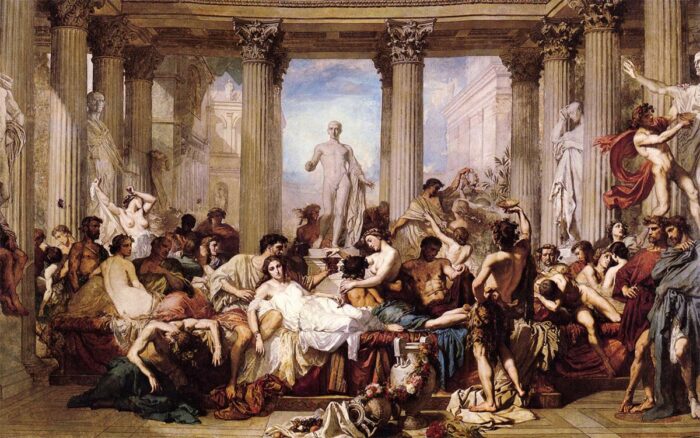Greek proverbs are timeless, often blunt, and sometimes surprisingly funny. They come from Greece’s everyday life and usually carry a truth that still holds today.
Many of them, however, were shaped in older times, when morals were different and women’s place in society was difficult, so you’ll also find sayings that sound sexist or harsh by modern standards.
In just a few words, they can shock, make you laugh, or make you think about life, love, work, and human relationships. This collection gathers some of the most famous — as well as some of the sharpest and most provocative — Greek proverbs, grouped by theme.
Human Relationships
(Literal translations lose nuance; English equivalents approximate. First is the literal Greek translation, then after the dash is the English equivalent. Humor and subtlety may vary.)
| Literal / Greek Proverb | English Equivalent / Meaning | Notes |
|---|---|---|
| “You go out and get paid through sex, and bring the money home to survive.” | You can’t have it both ways. | Insulting; reflects past social conflicts; extremely blunt; meant to shame. |
| “You left the marriage and went to the oaks?” | Let sleeping dogs lie. | Refers to abandoning a marriage and the chaos that can follow; very metaphorical. |
| “Who loves, pays.” | Love is never free. | Slightly ironic edge; love has a cost, financial or emotional. |
| “The bride farted, and the wedding broke.” | Something small can ruin everything. | Extremely blunt humor; emphasizes how tiny mishaps can destroy big events. |
| “When the cat is away, the mice are dancing.” | When the cat’s away, the mice will play. | Straightforward; widely understood across cultures. |
| “Eyes that don’t see each other forget quickly.” | Out of sight, out of mind. | Literal and English versions very close. |
| “Give courage to the villager and he’ll get into your bed.” | Tempt a fool and he’ll fall for it. | Risqué; literally warns against having many relations with villagers. |
| “Show me your friend, and I’ll tell you who you are.” | Tell me who your friends are, and I’ll tell you who you are. | Classic proverb; literal and English meaning match closely. |
| “If you make the villager a friend, better hold a piece of wood in your hands.” | Be careful who you trust. | Original metaphor involves potential violence if you deal with a villager. |
| “Widows cry, married women cry too.” | Everyone has their troubles. | Straightforward; universal sense of shared human suffering. |
| “The world knows everything, and we keep it as hidden pride.” | Appearances can be deceiving. | Personal pride and secrecy; English equivalent softens the nuance. |
| “I tell my dog, and the dog tells its tail.” | News travels fast. | Humorous and slightly absurd literal translation; English captures core idea. |
Money and Stinginess
(Literal translations lose nuance; English equivalents approximate. Often exaggerates the absurdity of greed or thriftiness.)
| Literal / Greek Proverb | English Equivalent / Meaning | Notes |
|---|---|---|
| “He squeezes fat from a fly.” | Making a mountain out of a molehill. | Describes someone extracting profit from the tiniest thing; English equivalent softens the meaning. |
| “Grab to eat and steal to have.” | Take what you can get. | Literal is harsher; implies opportunism or greed; English version is milder. |
| “Every penny you give comes back like a knife in your back.” | No good deed goes unpunished. | Very blunt in Greek; conveys betrayal or consequences of generosity. |
| “Money in the sun, heart very low.” | All that glitters isn’t gold. | Literal translation is poetic but obscure; English captures the cautionary meaning. |
| “Who lends women or money never returns home.” | Neither a borrower nor a lender be. | Extremely harsh and misogynistic literal meaning; English version is general financial advice. |
| “Who goes for much loses even the little.” | Don’t bite off more than you can chew. | Literal sense is very close; warns against greed. |
| “Who drinks on credit gets drunk twice.” | Debt doubles the trouble. | Literal is humorous but pointed; English version simplifies the proverb. |
| “Cough and money cannot be hidden.” | The truth always comes out. | Literal is more vivid and slightly absurd; English generalizes the idea. |
| “The hungry dreams of bread.” | A hungry man dreams of bread. | Literal and English equivalent very close; simple, universal imagery. |


Female Power
(Literal translations lose nuance; English equivalents approximate. Emphasizes strength and influence in a slightly humorous or exaggerated way.)
| Literal / Greek Proverb | English Equivalent / Meaning | Notes |
|---|---|---|
| “A woman who cooks with a knife doesn’t joke.” | Don’t play with fire. | Warns about a sharp-tempered woman. |
| “A pussy can pull a ship.” | Behind every great man is a woman. | Sexual metaphor; emphasizes female influence/power. |
| “Before a woman’s quarrel, your head better be gone.” | Avoid a woman’s wrath. | General warning about anger or conflict with women. |
| “A woman has nine lives, a man only one.” | Women are resilient. | Highlights female endurance and adaptability. |
| “Maria had nothing, but she looked for her missed ferret.” | She had it all, except that. | Literal; ironic, not sexual; highlights focus on small details despite poverty. |
| “If you keep speaking to a girl, she will do what you want at the end.” | Girls will do as they please. | Literal; illustrates cunning and persistence. |
About John
(Literal translations lose nuance; English equivalents approximate. Very culturally specific; humor may be lost in translation.)
| Literal / Greek Proverb | English Equivalent / Meaning | Notes |
|---|---|---|
| “A house without John doesn’t prosper.” | No John, no progress. | Probably invented by Georges; satirical saying. |
| “Forty-five Johns have the intelligence of one rooster.” | Too many cooks spoil the broth. | Probably invented by Georges; implies anyone named John is stupid. |
| “What you had, John, what I always had.” | Same old story. | Teasing proverb by Georges; humorous, not genuine folk wisdom. |
| “John, your handkerchief is bloody.” | Danger has arrived. | Teasing, probably invented by Georges; more playful than serious. |
| “John treats, John drinks.” | He who gives also takes. | Another satirical saying, probably by Georges. There are hundreds more about John. |
Work
(Literal translations lose nuance; English equivalents approximate. Shows the value of effort, laziness, and skill, often ironically.)
| Literal / Greek Proverb | English Equivalent / Meaning | Notes |
|---|---|---|
| “A tough guy for no reason, died without reason.” | Easy come, easy go. | |
| “Work? No, thanks. Death? Yes, from boredom.” | Idleness can kill. | |
| “In a lazy man’s house, the sun does not enter.” | A lazy man lives in darkness. | |
| “Too much work eats the master.” | Working too hard can destroy you. | |
| “Who is lazy to knead, sifts for five days.” | He who hesitates wastes time. | |
| “You want to reap and tie, you want to tie and carry.” | If you start a task, finish it properly. | Refers to the long, hard work of harvest. |
| “Art needs a master, fava needs oil.” | Skill is essential. | |
| “Manolis builds houses with words.” | All talk, no action. | Manolis is just a whimsical name for someone who talks a lot but does little. |
Social
(Literal translations lose nuance; English equivalents approximate. Covers interactions, gossip, and social norms, sometimes darkly humorous.)
| Literal / Greek Proverb | English Equivalent / Meaning | Notes |
|---|---|---|
| “With such friends, who needs enemies?” | Better the devil you know. | |
| “The hare’s eyes are different from the owl’s.” | Things are not always what they seem. | |
| “The dog that barks eats its tongue.” | Barking up the wrong tree. | |
| “Chest of marble, heart of potato.” | Cowardice is weak. | |
| “All roads lead to gossip… and knife fights.” | Gossip travels fast. | |
| “Lies have short legs… but sometimes bite.” | Lies don’t last. | |
| “Where you are, I was; and where I am, you’ll come.” | What goes around, comes around. | |
| “The vine was crooked, and the donkey ate it.” | Bad luck attracts more bad luck. | |
| “Hits the saddle to hear the donkey.” | Sometimes the message is lost. | |
| “Some sow, others reap.” | Not everyone benefits equally. | |
| “All together, the beggar apart.” | Unity is strength. | |
| “Everyone cries their pain, and the miller the channel.” | Everyone has troubles. | |
| “Where they don’t sow you, don’t grow.” | Don’t overstep your place. | |
| “Where many roosters crow, dawn is late.” | Too many leaders spoil the morning. |
Wise Proverbs
(Literal translations lose nuance; English equivalents approximate. Wisdom may be blunt or poetic; meaning can shift in English.)
| Literal / Greek Proverb | English Equivalent / Meaning | Notes |
|---|---|---|
| “They put the wolf to guard the sheep.” | Putting the fox in charge of the henhouse. | |
| “Lies have short legs… but sometimes bite.” | Lies have short legs. | The Greek adds a warning of potential harm. |
| “Who rushes, stumbles.” | Haste makes waste. | |
| “Basil, even if withered, smells.” | Beauty lasts in memory. | |
| “Teacher, you do differently than what you teach.” | Practice what you preach. | |
| “Slowly, slowly, the sour fruit becomes sweet.” | Slow and steady wins the race. | |
| “Listen to an old man’s advice.” | Wisdom comes with age. | |
| “You grew old and yet didn’t get smart.” | Age isn’t wisdom. | |
| “The tongue has no bones but breaks bones.” | The pen is mightier than the sword. | |
| “As you lay, so shall you sleep.” | You reap what you sow. | |
| “Good explanations make good friends.” | Clear accounts, clear conscience. | |
| “From thorn comes rose, from rose comes thorn.” | Every rose has its thorn. | |
| “August, dear month, wish you were twice a year.” | Wouldn’t it be nice if summer lasted longer? | |
| “Two donkeys quarrel in a foreign barn.” | Fools fight over nothing. | |
| “From a child and a fool, you learn the truth.” | Wisdom often comes from unexpected sources. | |
| “One cuckoo does not bring Spring.” | One swallow does not make a summer. | |
| “A good day shows in the morning.” | Early indications matter. | |
| “Everything in its time, mackerel in August.” | Patience is key. | |
| “Every past year, better.” | Learn from past mistakes. |
Social Rules
(Literal translations lose nuance; English equivalents approximate. Focuses on etiquette, cause-effect, and folk logic.)
| Literal / Greek Proverb | English Equivalent / Meaning | Notes |
|---|---|---|
| “From lightning and ruler, expect nothing good.” | Don’t expect miracles. | |
| “All pigs have the same face.” | They’re all the same. | |
| “Eyes that don’t see each other forget quickly.” | Out of sight, out of mind. | |
| “Better alone than with bad company.” | Better safe than sorry. | |
| “I burned my hut to keep fleas away.” | Extreme measures for protection. | |
| “If you have luck, walk, and if you have fate, go further.” | Fortune favors the bold. | |
| “If you don’t praise your house, it will fall on you.” | Mind your own business. | |
| “Many opinions sink the ship.” | Too many cooks spoil the broth. | |
| “From pie you don’t eat, why care if it burns?” | Don’t worry about what doesn’t affect you. | |
| “Even if you’re a priest, go in line.” | Follow your role. | |
| “I have many stitches for your fur (body).” | I have ways to deal with you. | Warning, slightly threatening |
| “If you play with a donkey, accept its kicks.” | Expect consequences when provoking. | |
| “Who meddles with bran gets eaten by chickens.” | Mind your own business. | |
| “Who enters the dance, dances.” | Join and play the game. | |
| “Don’t bless anyone before the end.” | Don’t count your chickens before they hatch. | |
| “He doesn’t know how to share two donkeys’ hay.” | Can’t handle sharing. |
Death and Luck
(Literal translations lose nuance; English equivalents approximate. Talks about fate, mortality, and chance, often fatalistic.)
| Literal / Greek Proverb | English Equivalent / Meaning | Notes |
|---|---|---|
| “Now that we have found a priest, let’s bury as many as we can.” | Better late than never. | Ironic, dark humor |
| “Who doesn’t work, shouldn’t eat.” | No work, no food. | |
| “Luck is blind but ruthless.” | Fortune favors no one. | |
| “From your mouth to God’s ear.” | Let it be so. | |
| “God delays, the poor burst.” | The needy can’t wait. | |
| “The drowned grabs from his hair.” | Desperate times call for desperate measures. | |
| “A hungry bear doesn’t dance.” | You can’t work on an empty stomach. | |
| “Don’t play with fire.” | Don’t tempt fate. | |
| “Near the dry, even the wet crops burn.” | Collateral damage happens. |
Sarcastic
(Literal translations lose nuance; English equivalents approximate. Humor and irony may be especially tricky to convey.)
| Literal / Greek Proverb | English Equivalent / Meaning | Notes |
|---|---|---|
| “Went as an ox, returned as a cow.” | Nothing goes as planned. | |
| “The tongue has no bones but breaks bones.” | Words hurt more than actions. | |
| “Head up, but eyes open.” | Stay alert. | |
| “Milk hares, shear turtles.” | Do the impossible. | |
| “Philip found Nathanael.” | Unexpected results happen. | |
| “John drinks, John treats.” | Fair play. | |
| “Even the spotted goat laughed.” | Even the oddest find humor. | |
| “Even the perches will laugh.” | Everyone will laugh at folly. | |
| “Sleep feeds babies, sun feeds calves.” | Nature nurtures. | |
| “Said the donkey to the rooster: fool.” | Calling a spade a spade. | |
| “From the city I come, cinnamon at the top.” | Big city, small sense. | |
| “Like loves like, manure loves cabbage.” | Birds of a feather flock together. | |
| “The hungry donkey doesn’t count the blows.” | Desperate people take risks. | |
| “Crows elsewhere, hens lay elsewhere.” | Different strokes for different folks. | |
| “We are doomed.” | We’re screwed. | |
| “Poverty eats the money.” | Cheapness costs. | |
| “Bad dog has no death.” | A bad person never learns. | |
| “The good captain shows in a storm.” | True leaders shine in crisis. |
Power and Human Passions
(Literal translations lose nuance; English equivalents approximate. Deals with desire, greed, jealousy; often metaphorical.)
| Literal / Greek Proverb | English Equivalent / Meaning | Notes |
|---|---|---|
| “The wolf eats from what is counted.” | Measure twice, cut once. | |
| “The wolf, though aged and gray-haired, changes neither opinion nor head.” | Old habits die hard. | |
| “Feed a wolf in winter, it will eat you in summer.” | Beware of helping the ungrateful. | |
| “They put the wolf to guard the sheep.” | Foolish trust backfires. | |
| “Love blinds and jealousy crushes.” | Love is blind, jealousy is cruel. | |
| “Who sows anger, reaps knives.” | What goes around comes around. |
Sex and Humor
(Literal translations lose nuance; English equivalents approximate. Bold, risqué, or playful; English may soften extremes.)
| Literal / Greek Proverb | English Equivalent / Meaning | Notes |
|---|---|---|
| “Chest of marble, heart of potato.” | Cowards hide their feelings. | |
| “A pussy has the power to drag a ship.” | Behind every man is a woman. | |
| “He drowns the rabbit, shakes the pear tree, sends the letter…” | Sexual metaphor; absurd exaggeration. | |
| “Elsewhere you rub me, Father, and elsewhere I have the pain.” | Sexual metaphor. | |
| “From nothing, Panagiotena is good too.” | Beauty is relative. | |
| “Your yard thirsts for water, and you are watering elsewhere.” | Your wife is sexually thirsty and you’re cheating around. | |
| “Outside looks like a doll, and inside a plague.” | Appearances deceive. | |
| “I want to be a saint, but the devil won’t let me.” | Conflict of desire. | |
| “The old hen has the juice.” | Sexual metaphor; experience counts. | |
| “The good mill grinds everything.” | All-purpose usefulness. | |
| “Have a child to see prosperity.” | Family brings fortune. | |
| “Honor has no price, joy for the one who has it.” | Respect is priceless. |
Cynical Truths
(Literal translations lose nuance; English equivalents approximate. Harsh, pragmatic observations about life and people.)
| Literal / Greek Proverb | English Equivalent / Meaning | Notes |
|---|---|---|
| “Every penny you give comes back like a knife in your back.” | No good deed goes unpunished. | |
| “Money in the sun, heart very low.” | Money can’t buy happiness. | |
| “Who lends women or money never returns home.” | Don’t lend what you can’t lose. | |
| “Who is not happy with wealth, loses the little too.” | Grasping leads to losing. | |
| “Who has no mind has legs.” | Fools act blindly. | |
| “Once burned, you blow on the yogurt too.” | Learn from past mistakes. | |
| “Who has the fly, gets suspicious easily.” | Sensitive people notice small things. | |
| “Who digs another’s pit, falls in himself.” | Backstabbing backfires. | |
| “Who spits upwards, spits in his face.” | What goes around comes around. |




















Comments